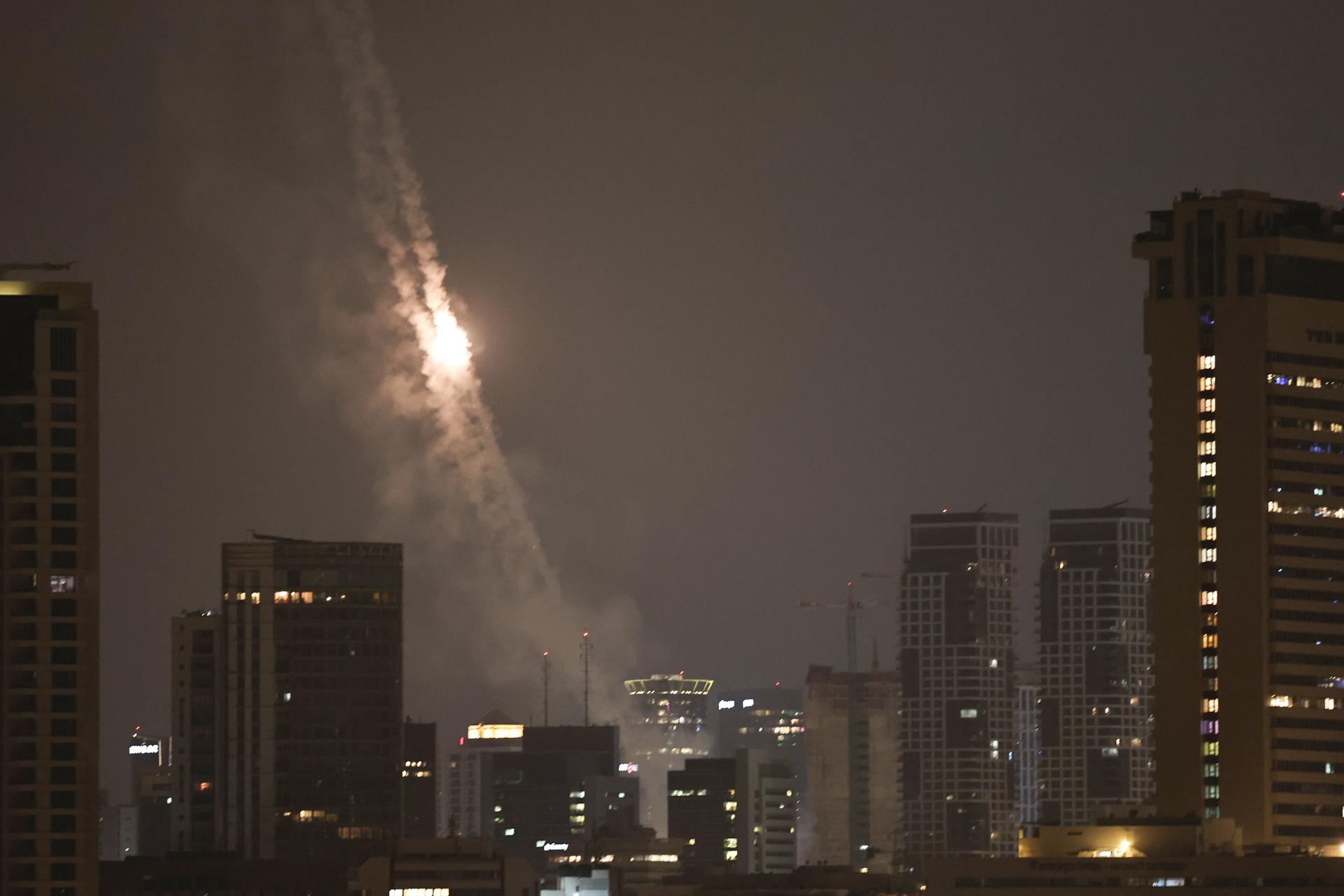After four days of attacks with Israel, Iran is reportedly seeking a way out and returning to nuclear talks with the US.

Iran has communicated through Arab countries that it wishes to end the current conflict with Israel, after four days of cross-border bombing in which it has borne the brunt, and return to the negotiating table over its nuclear program, according to the Wall Street Journal, citing "European and Middle Eastern sources."
The final recipient of this message with its willingness to negotiate is twofold: Israel and the United States.
However, there is one important condition that Tehran has put on the table: that the United States not actively join in Israel's attacks , even though it assumes Washington has provided logistical support to Israel. In fact, Iranian rhetoric has repeatedly stated in recent days that it considers the United States "complicit" in the attacks.

Iranian bombings on Israel Photo: Private social media archives
Arab sources emphasize that a de-escalation of the attacks—the worst in decades —could give Tehran some breathing space that would allow it to garner international support, as they understand that Israel is in need of a "diplomatic solution" given its unclear short-term strategy in the face of this wave of attacks.
And although Israel has damaged several nuclear complexes and assassinated several Iranian scientists responsible for the atomic program, it has not managed to substantially affect the Fordó plant, as Israel would need US technology to do so, which it currently lacks, according to the newspaper.
The message Tehran has conveyed is not only conciliatory, but also contains a warning: it suggests that Iran has the capacity to expand its attacks on Israel and accelerate its nuclear program if it does not see Washington willing to return to the negotiating table.

Iran's new attack on Israel. Photo: EFE
According to the newspaper, three Arab countries—Saudi Arabia, Qatar, and Oman—are trying to influence Washington to force the Donald Trump administration to force Israel to halt this undeclared war, arguing that its continuation is already causing a worrying rise in the price of crude oil and poses a real potential risk of spreading to more countries in the region.
The conflict in Iran disrupts trade with Afghanistan and raises fuel prices. The ongoing conflict between Iran and Israel, following several exchanges of attacks, is already affecting Afghanistan, the Persian country's neighbor, especially its western border provinces, where tensions are already having repercussions on trade in some goods, including fuel, despite the fact that the border crossings between the two countries remain officially open.
Before the war, a ton of gasoline cost $950, now it has reached $1,130.

Iranian command line eliminated by Israel. Photo: Israel Defense Forces Spokesperson
"The ongoing war across the border (in Iran) is having repercussions in (Herat province) and the rest of Afghanistan. The impact is evident for some goods and materials for which Herat's market is completely dependent on Iranian imports," Mufti Yousuf Saeedi, spokesman for the provincial governor of this region, told EFE.
"We are all concerned about the war, as it concerns regional stability," he added.
Herat's Refugee Affairs chief, Mohammad Aslami, reported that the Islam Qala border crossing between Iran and Afghanistan remains operational and is experiencing significant movement of people.

What is known about Israel's attack on Iran? What could happen? Photo:
"The number of returning migrants has increased, many Afghans are entering the country, and many are returning home from Iran," Aslami said.
A fuel importer in Kabul, Haji Nooer Rahman, said that for four days, no Iranian fuel imports have entered Afghanistan, causing prices to rise.
" Before the war, a ton of gasoline cost $950, now it's up to $1,130 ," he added.
Retailers believe that due to rising fuel prices and reduced imports, food prices have also increased in Afghanistan and imports have slowed, said Hija Mirwais, a fuel store owner.

Smoke billows in Tehran, Iran, following Israel's latest attack this Saturday, June 14. Photo: EFE
Authorities in Herat province are preparing for increased pressure and further supply chain disruptions that could affect people living along the Afghan-Iranian border.
"Millions of Afghans live in Iran. As the war there intensifies, we are concerned not only about the safety of our refugees, but also that the conflict could further exacerbate the economic and humanitarian challenges in Afghanistan," university student Abdullah Zargai, whose two brothers work in Iran, told EFE.
More than 2 million Afghans live in Iran, some without the documentation required by Tehran and as undocumented refugees.
eltiempo





